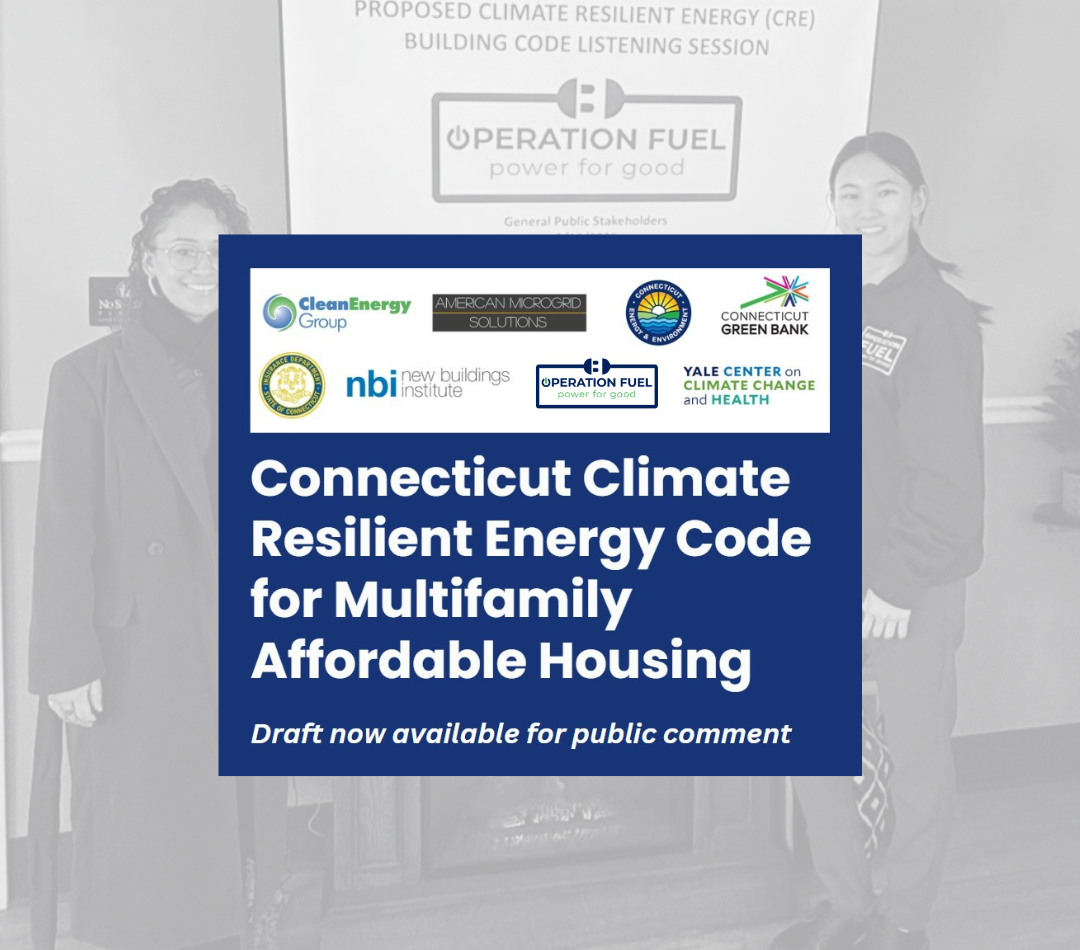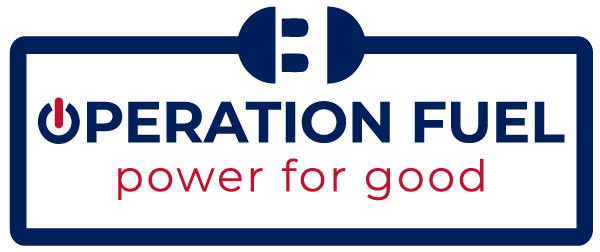Thank you to Our Project Partners:
Clean Energy Group, American Microgrid Solutions, Connecticut Department of Energy & Environmental Protection, Connecticut Green Bank, Connecticut Insurance Department, New Buildings Institute, Operation Fuel, Yale Center on Climate Change and Health; funded by the U.S. Department of Energy Office of Energy Efficiency & Renewable Energy (EERE).
About This Report:
Current Project Phase: October 1. 2023 – March 31, 2025
For the first phase of this project, our community research team conducted in-person listening sessions to gather feedback from residents of multifamily affordable housing communities on the proposed set of code measures. Resident feedback was gathered to inform the code development process by listening to the lived experiences and input shared by those who will be directly impacted.

Read the Full Report Here
The draft of the Connecticut Climate Resilient Energy Code is a set of guidelines helps ensure that buildings dedicated to affordable housing are ready for the unexpected by installing solar panels, energy storage, and efficient heating and cooling systems. These important upgrades can keep homes safe and comfortable during power outages while supporting essential services.
First Phase Report Key Findings:
- Residents generally viewed the proposed measures of the Climate Resilient Energy (CRE) building code as a promising step toward mitigating energy-related burdens, protecting occupants’ comfort and health, and strengthening future generations’ climate and energy resilience against unprecedented challenges.
- Code futureproofing, while relying on resident input, is crucial for long-term feasibility and cost reductions. Cost was a common concern shared across our feedback sessions, which is central to the feasibility of implementation. The code development process should continue to prioritize inclusive planning and adaptability of the proposed measures to future contexts and the various needs of residents living in affordable housing.
- Communication and transparency are essential to effective code implementation. Transparency builds trust and proper communication ensures that residents stay informed about the status of proposed measures, code implementation timelines, and emergency procedures, which have a direct impact on their wellbeing and living conditions.
